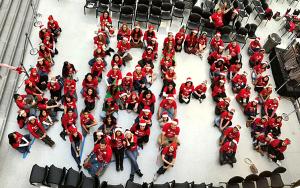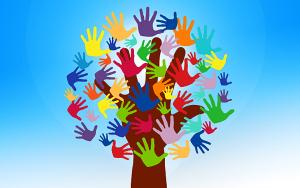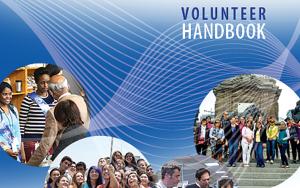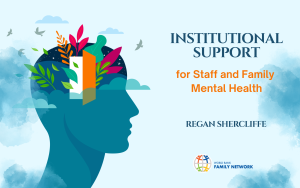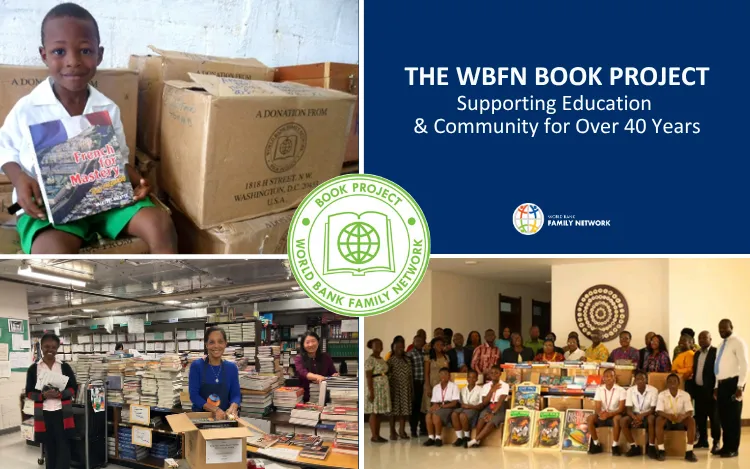
It is often the photographs that stay with us, the wide, beaming smiles of children in Kenya as they kneel on the grass, eagerly leafing through storybooks; or the joyful wave of students in the Philippines celebrating the arrival of their very first shipment of books. These moments capture the heart of the WBFN Book Project (BP), children discovering new worlds through books, and volunteers finding friendship, purpose, and a shared mission.
For more than four decades, the WBFN Book Project has championed literacy, learning, and opportunity for children and youth around the globe. It all started in 1982 after a visit by Peggy Clausen, wife of the World Bank President, and Babs Knox, wife of the Vice President for the Africa Region, to an orphanage in Lagos, Nigeria, where they saw children with no books or learning materials. Moved to act, they rallied the World Bank community, and by July 1983 the Book Project was officially established as a charitable organization. A month later, the first shipment of books was sent to Lagos, including to the orphanage that sparked the initiative.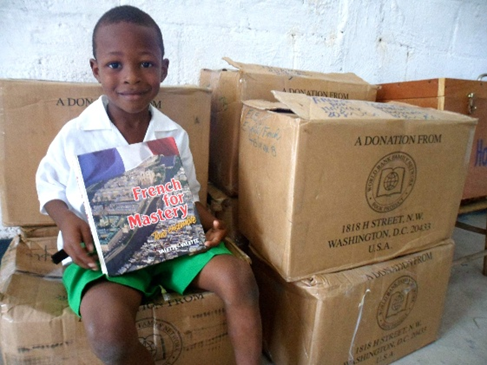
A boy in Haiti sitting among boxes of schoolbooks from the WBFN Book Project
Since 1983, the project has collected, sorted, and shipped gently used school textbooks and library books to under-resourced schools and communities, bringing the gift of learning to places where access to reading material is limited and educational resources are scarce.
For many newly arrived WB spouses/partners, the Book Project is often the first place they feel at home. It offers a friendly environment where they can contribute meaningfully while settling into life in Washington, DC. Volunteers frequently share that their time at BP provided companionship, and also an opportunity to practice and improve English language skills through lively conversations while unpacking, sorting, and packing books. Many of today’s long-standing WBFN friendships trace their roots back to the packing tables of the Book Project. This sense of belonging has made the BP a cherished space of community and connection for WBFN members and World Bank retirees.
As the World Bank (WB) leads global efforts in education, the Book Project has quietly and consistently supported this mission at a grassroots level, bringing books to children in local communities. Access to books promotes literacy, confidence, and opportunity, reinforcing WB values of equity and inclusion. By reusing and redistributing books, the BP also champions sustainability keeping valuable learning resources in circulation.
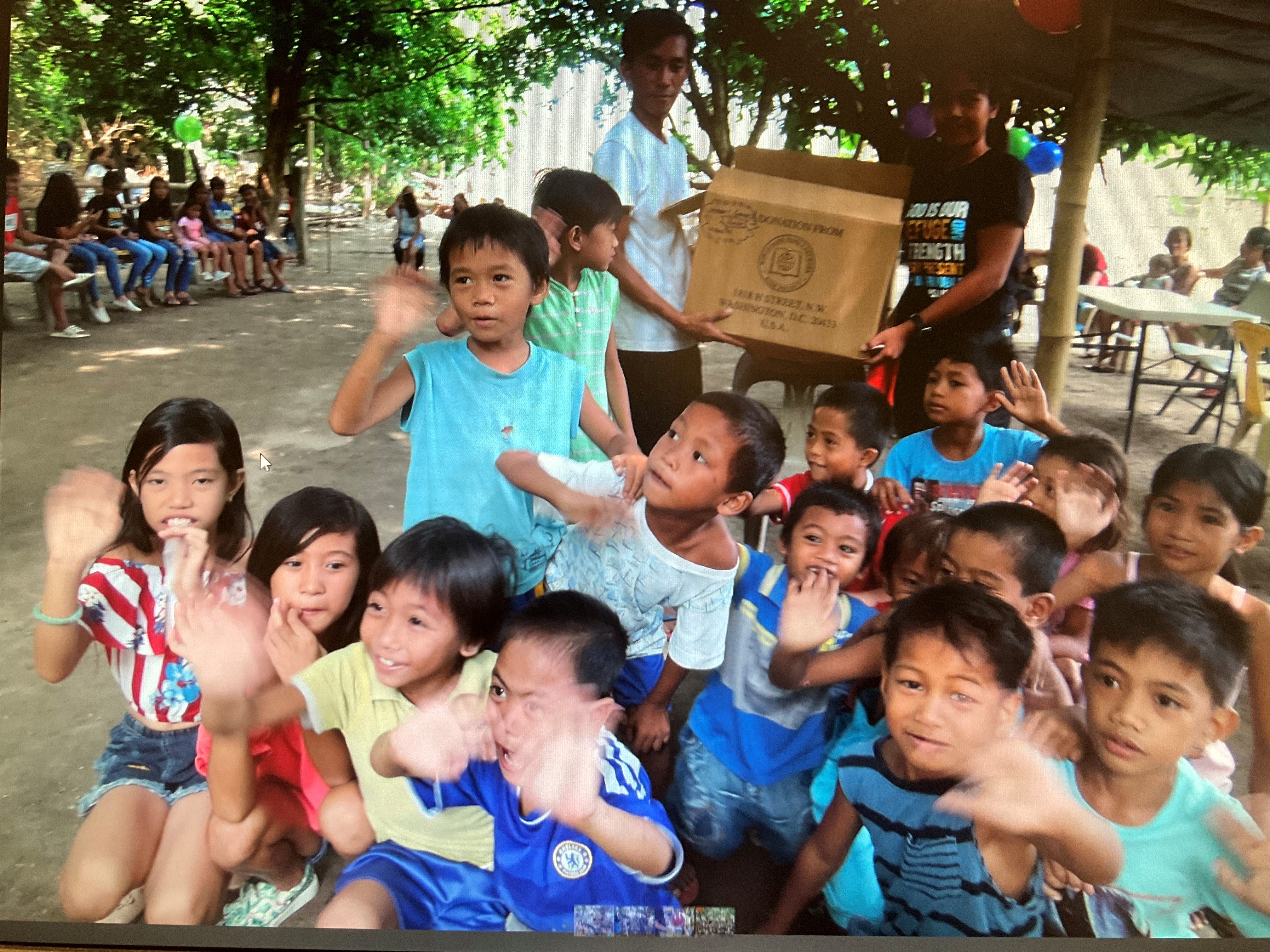

Left..."Children in the Philippines celebrating the arrival of books from the WBFN Book Project" Right: children in Kenya receiving schoolbooks
from WBFN Book Project.
Operating from its packing room in the World Bank’s J Building basement, volunteers contribute an average of 4,500 hours each year, sorting and packing textbooks and library books donated by schools across DC, Maryland, and Virginia, as well as from individual donors. Support by GCS who manage storage and logistics ensures smooth and efficient shipment.
Over the past 40 years, the Book Project has shipped more than 3.5 million books to over 100 countries across Africa, Asia, Latin America, the Middle East, and the Pacific Islands; reaching students from primary school through university.
Shipments have reached schools and non-profit centers through partnerships with local education agencies and World Bank staff, sharing a commitment to literacy and learning. The growing interest from members, including Country Office volunteers, has opened doors to expand this model further.


Left: Contractors from JK Movers shrink wrapping a pallet of books in the Book Project’s packing room; Right: a contractor from Canon
loading a pallet of shrink wrapped book for transporting from the packing room to the Landover warehouse
Some highlights of the Book Project’s global impact:
|
Country |
No. of Books |
Schools/Libraries |
Students Reached |
|---|---|---|---|
|
Tanzania |
30,000 |
135 |
29,000 |
|
Ghana |
75,000 |
135 |
90,000 |
|
Mongolia |
15,000 |
28 |
30,000 |
|
Papua New Guinea |
30,000 |
42 |
(data not recorded) |
|
Kenya |
105,000 |
143 |
60,000 |
|
Vanuatu |
30,000 |
26 |
6,000 |
|
Pakistan |
30,000 |
86 |
17,000 |
|
India |
180,000 |
N/A |
Thousands annually |
Beneficiary Countries:

The impact of the Book Project is best reflected in the voices of those it serves.
“The books you sent us enriched our Library…They have helped our children and Teaching faculty to develop an interest in reading beyond the traditional reference reading. Your gift opened a world of endless opportunities for our Student Community.” [excerpt from a thank you letter dated August 7, 2025 from the Nava Bharath Matric Higher Secondary School in India]
“Assuming that libraries have a strategic function in any education system, a library-aware citizenry is likely to grant libraries their due place in a community. And the students of today will be the citizens and community members and leaders of tomorrow. By reaching out to the students who come and research, read and borrow books from the BLMJ, the WBFN’s Book Project is contributing to the noble cause of preparing a better citizenry.” [excerpt from a letter sent to WBFN Book Project by the sponsor of a shipment of 52 boxes of library books in French to support Bibliothèque du Lycée Municipal de Jacqueville (BLMJ), a library project in Cote d’Ivoire]
“In striving to live up to its main objective of assisting in promotion of children’s literacy the WBFN Book Project compliments the WBG’s humanitarian goals of reducing poverty and illiteracy. It promotes grassroots goodwill in parts of the world where WBG work may not be visible to the ordinary citizen; also helps to recycle books and thereby aids the environment.”

Faculty and students from the University of Health and Applied Science in the Volta Region of Ghana
– Recipients of a 40’ container from the WBFN Book Project.
At its heart, the Book Project remains a symbol of continuity and care. A gentle reminder that even a
single book can uplift a child, connect a community, and inspire opportunity.

